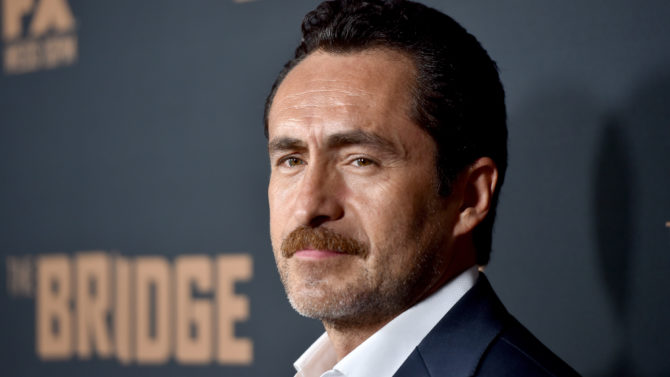
Mexican actor Demián Bichir was one of millions eagerly anticipating President Barack Obama’s 15-minute primetime speech the night of November 20 detailing how he plans “to fix our broken immigration system” throughout his final two years in office.
Under the reform, Obama will assert his executive powers to halt deportations for more than 4 million undocumented immigrants and allow them to work legally in the country, if they’re willing to submit themselves to a background check and pay their share of taxes. Focusing on deporting “felons, not families,” Obama offered a measure that, although far from permanent (it grants legal status for three years at a time and does not offer a clear path to citizenship), is significant. Obama will continue “to work with Congress on a comprehensive, bipartisan bill that can replace these actions and fix the whole system,” according to The White House.
“Are we a nation that tolerates the hypocrisy of a system where workers who pick our fruit and make our beds never have a chance to get right with the law?” the President asked, rhetorically.
Many prominent members of the Latino community voiced their opinions on the matter, among them Bichir, who is an ACLU Celebrity Ambassador for Immigrants Rights and an Advocate for WOLA (Washington Office on Latin America). An Oscar-nominated actor for his role as an undocumented gardener caring for his son in 2011’s “A Better Life” and most recently the star of FX’s “The Bridge,” Bichir shared his thoughts on the president’s speech in an official statement for Variety Latino, noting that although Obama painted a hopeful picture for millions of immigrants, there is a long road ahead.
“Today is a day of hope. Although this fixes only part of the broken immigration system, it represents a huge leap forward in the journey towards treating these hard working families in a more just fashion.These are families that contribute to the United States, a lot of them work two or three jobs, and that want the opportunity to live the American Dream. My heart goes out to the thousands of kids like Astrid who have been bravely enduring these times of uncertainty.We will not rest until the immigrants who did not benefit today are protected from deportation. Congratulations to all of the advocates who have been fighting passionately for this day. This is a new start and we will only get stronger from here.”
Obama’s speech comes after Republicans won control of the Senate in this year’s mid-term elections. A heated battle is expected ahead, as the GOP, and even some Democrats, have accused Obama of abusing his presidential power.
On Friday, November 21, the President visited a high school in Las Vegas, part of a longer-term campaign aimed at gaining public support for his actions.
Here are the three main pillars of the President’s Immigration Accountability Executive Actions (via The White House):
- Cracking Down on Illegal Immigration at the Border: The President’s actions increase the chances that anyone attempting to cross the border illegally will be caught and sent back. Continuing the surge of resources that effectively reduced the number of unaccompanied children crossing the border illegally this summer, the President’s actions will also centralize border security command-and-control to continue to crack down on illegal immigration.
- Deporting Felons, Not Families: The President’s actions focus on the deportation of people who threaten national security and public safety. He has directed immigration enforcement to place anyone suspected of terrorism, violent criminals, gang members, and recent border crossers at the top of the deportation priority list.
- Accountability – Criminal Background Checks and Taxes: The President is also acting to hold accountable those undocumented immigrants who have lived in the US for more than five years and are parents of U.S. citizens or Lawful Permanent Residents. By registering and passing criminal and national security background checks, millions of undocumented immigrants will start paying their fair share of taxes and temporarily stay in the U.S. without fear of deportation for three years at a time.






